20+ SAMPLE School Statement
-
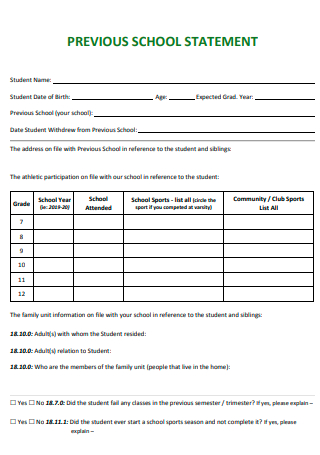
Previous School Statement
download now -
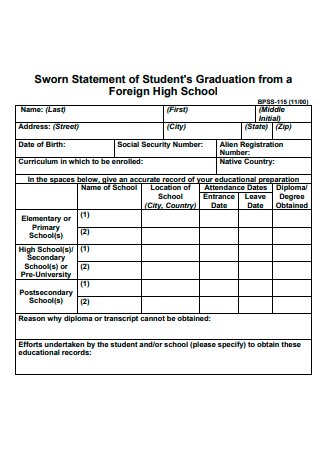
Foreign High School Statement
download now -
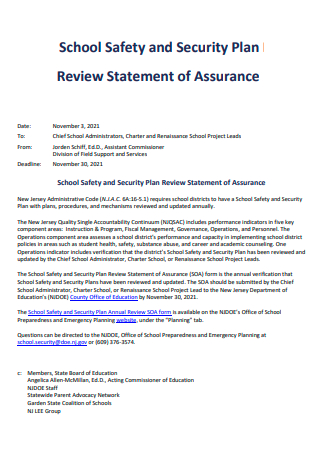
School Safety and Security Plan Review Statement of Assurance
download now -
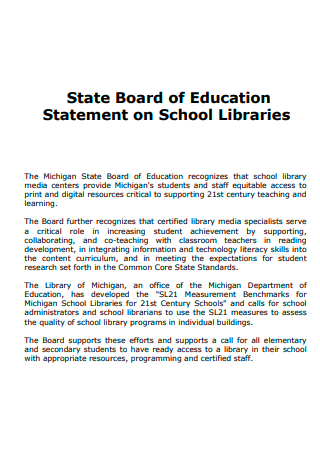
School Libraries Statement
download now -
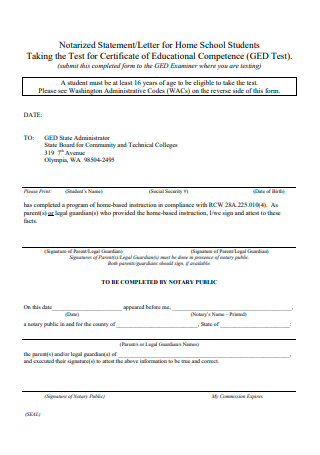
Letter for Home School Students Notarized Statement
download now -
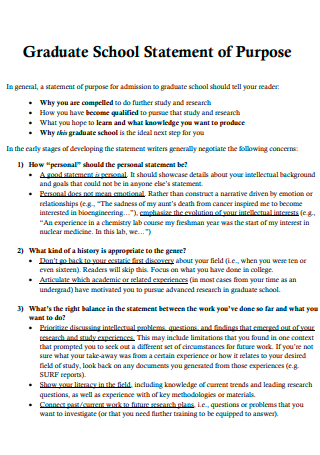
Graduate School Statement
download now -
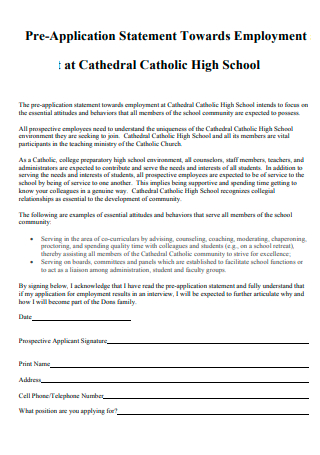
High School Pre-Application Statement
download now -
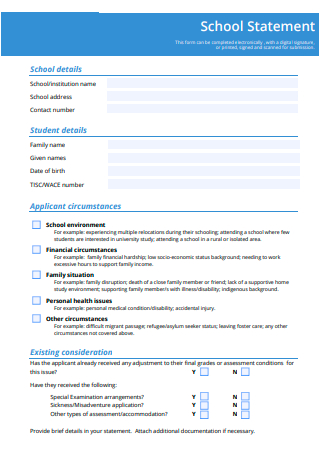
Formal School Statement
download now -

High School Mission Statement
download now -
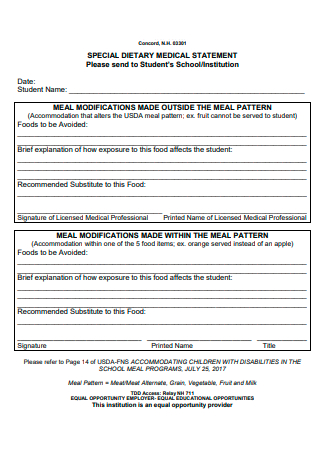
School Medical Statement
download now -

School Board Equity Statement
download now -
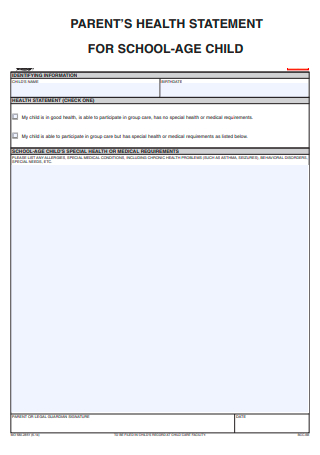
School Age Child Parents Health Statement
download now -

School Statement in Support
download now -

Home School Collaboration Position Statement
download now -
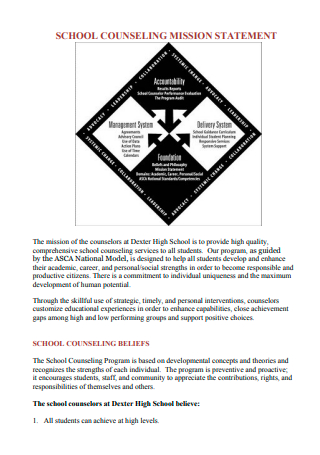
School Counseling Mission Statement
download now -
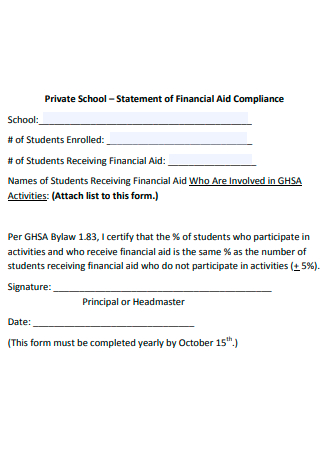
Private School Statement
download now -

School Boards Association Media Statement
download now -
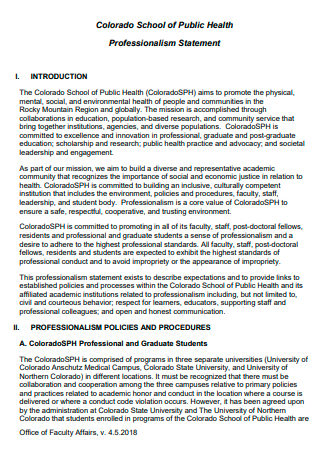
School of Public Health Professionalism Statement
download now -
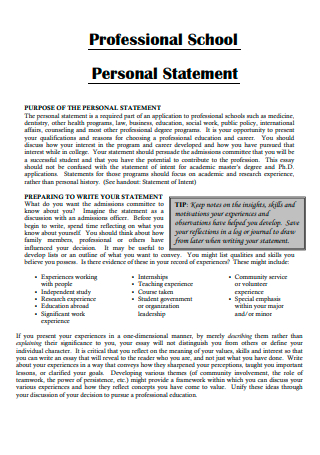
Professional School Personal Statement
download now -
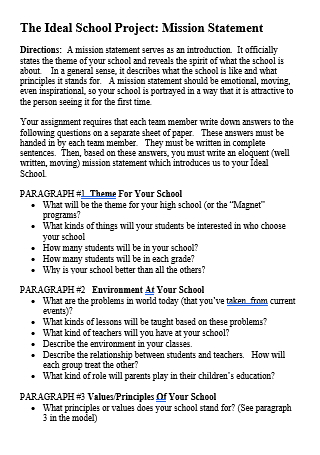
School Project Mission Statement
download now -
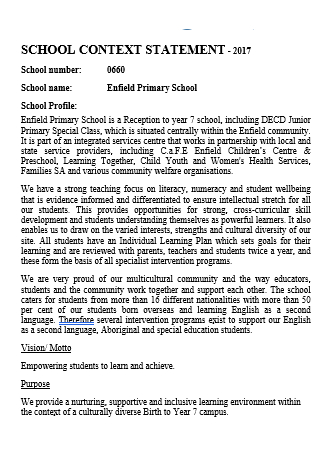
School Context Statement
download now
What Is a School Statement?
A school statement is a formal or official statement that is produced by any member of an academic community for a variety of reasons. The statement can concern any school matter- from internal academic affairs, student activities, to societal issues.
According to an online article by Prodigy, a school mission statement can have a profound impact on student achievement. Mission statements also reveal the priorities and goals of an academic community.
Types of School Statements
A school statement can cover a pretty broad definition. Thus, it is imperative to make a distinction between the different kinds of school statements. As mentioned above, the statement can serve several purposes or have different objectives. The following examples describe just some of the most common types of school statements.
Who Can Make a School Statement?
As discussed in previous sections, a school statement can be written or published by any member of the academic community. From school administrations, teachers’ unions or even student-led organizations, the following examples below enumerate and describe some of these essential players.
How to Create a School Statement
To create a school statement, you need to establish a clear objective first. And if you are looking for quick and easy templates to use as a reference guide, you can choose from several sample statements from the curated collection above. Choose a template that suits your needs and follow the basic step-by-step guide below.
Step 1: Identify the Recipient
The first step is identifying the recipient of the statement. You need to clearly define who the school statement is for. Who is it addressed to? Who needs to be made aware of the information or facts in your statement? You need to formally address the recipient. Whether it is the general school population or an admissions director, be sure to use the appropriate titles or salutations accordingly. Format matters as well. School statements can come in different forms. It can be in the form of a one-page circular, essay, or even a brief press statement. Make sure that the format you use is suitable and makes it easy to identify the recipient.
Step 2: Start with a Brief Introduction
The next step is to provide a short introduction. The opening lines are necessary because they allow a smoother transition of ideas. The objective and purpose of a school statement can vary. So there is no one way of creating an appropriate introduction because it would depend on the overall objective. It can be a simple greeting or a candid comment on what the reader or recipient can expect from the school statement. However you wish to frame your introduction, just be sure to keep it concise, brief and interesting. It should prepare the reader to understand the main points in the succeeding section.
Step 3: Outline the Main Points
After creating an apt introduction, you can then proceed to the main part of the statement that contains all of the relevant details. Depending on what type of school statement you are crafting, there can be one or several key ideas. These may also be enumerated in bullet points if that will make it easier to understand. This section is essentially the core of the statement. It should be informative, direct, and clear. As much as possible, always keep your audience in mind. They should be able to comprehend the statement with as little difficulty as possible. This is especially applicable if the statement is addressed to the general school population.
Step 4: Confirm the Statement
Once you have outlined and provided all the important details, you can then proceed to the closing statement. The conclusion is just as important as the introduction. Again, it does not have to be long, keep it around the same length as the introduction or even shorter. For formal and official statements coming from academic administrators, it is necessary to authorize the statement or at least make it appear legitimate. You can make a formal declaration at the end of the statement that it is for everyone’s accordance or guidance. Alternatively, you can also leave contact details to entertain any clarifications or questions. Lastly, you need to have an authority figure affix their signature to certify the statement.
FAQs
How do you write a school statement?
To write a school statement, you need to first establish a clear objective. Once you’ve done this, you can plan your approach accordingly. Ideally, your statement should have a brief introduction, a main body and a sound conclusion. Refer to the previous section for more detailed instruction on how to create a school statement.
What is a school statement?
A school statement can mean different things. As discussed above, it can refer to an individual or personal school statement; or it can be a formal statement that’s meant to be disseminated to the general school population or the public.
What is an example of a school mission statement?
Ideally, a school mission statement is supposed to be action-oriented. A mission essentially implies that there is a plan to be executed or implemented. It’s important to keep the statement brief yet concise too.
School statements should be communicated effectively, regardless of the objective. Browse the wide selection of free templates above, select one that suits your needs, and start drafting your own school statement now!
